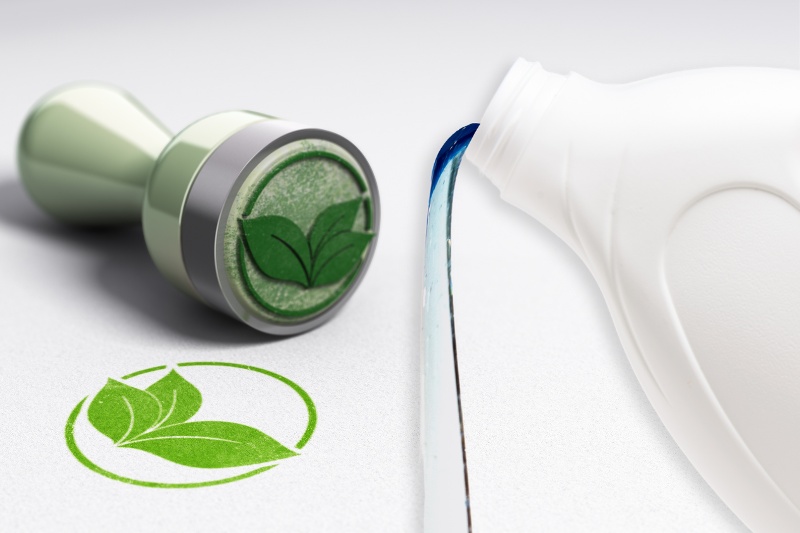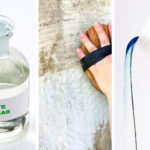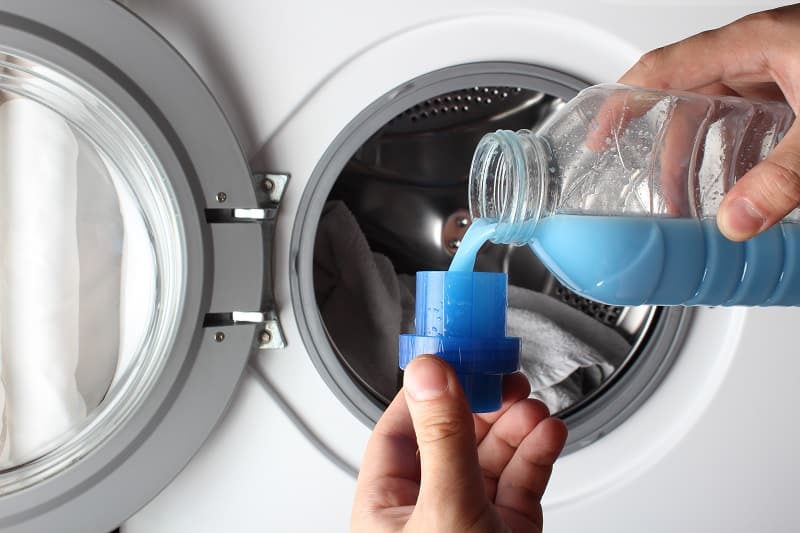Nobody enjoys putting on a fresh outfit in the morning only to find that the fabric has gone scratchy in the wash.
Many people swear by fabric softener to combat this discomfort, as it helps to soften fabric, reduce static, and make the clothes smell great!
Unfortunately, more and more concerns have been brought to light about whether these products are good for you, your clothes, or the environment.
This has caused many people to give up on fabric softeners, but it does mean that you have to live without soft garments.
If this is a dilemma you currently face, never fear; you can try an alternative to fabric softener instead! We have 11 eco-friendly options that will work just as well as your usual store-bought brand.
Below are our 11 solutions. Why not try one out and see the results for yourself?
1. Eco-Friendly Fabric Softener
First, we have the simplest solution: buy an eco-friendly fabric softener. These products are usually more expensive than their more commonly used counterparts but are a great option if you would rather buy a bottle of fabric softener and have done with it.
These products, such as the Miniml Eco Fabric Softener and Conditioner, don’t contain any harsh chemicals, often come in recyclable or refillable packaging, and, unlike many of the other options on this list, are fragranced.
2. Laundry Egg
If you want a cheaper fabric softener alternative that can be bought online, why not try out a laundry egg? These plastic eggs are often purchased as an alternative to laundry detergent, but they also work to soften clothes.
We highly recommend the Ecoegg if you decide to go down this route. The eggs are fully recyclable and come with hypoallergenic pellets lasting up to 720 washes (depending on the package size). All you have to do is throw the egg in with your load of washing and let it do its thing!
3. Soap Nuts
Soap nuts are another natural alternative to fabric softener that is most commonly bought as a laundry detergent.
We recommend EcoZone Soap Nuts as they are good value, come in recyclable packaging, and will last a whole year!
To use, you simply need to put 4 or 5 nuts into the bag provided and put it into the drum of your washing machine with the rest of your laundry.
When placed in the wash, the soap nuts release saponin, a kind of natural soap.
4. Dryer Balls
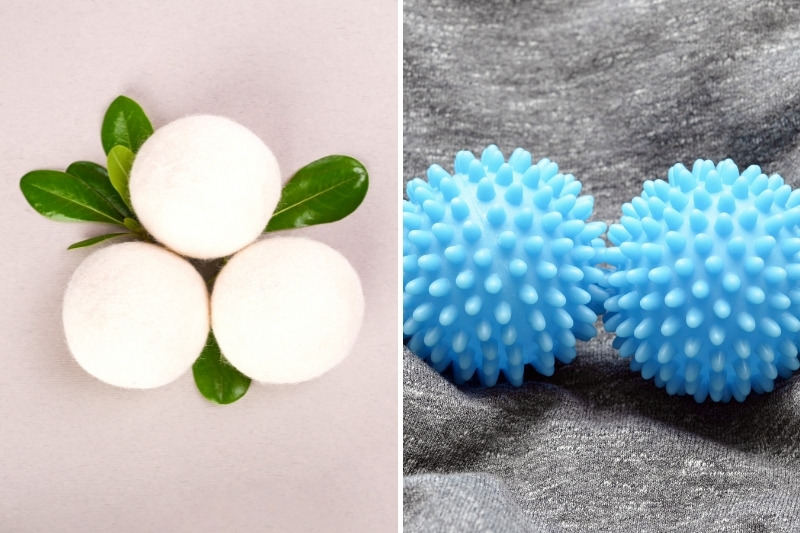
Next up, we have dryer balls, a great alternative to dryer sheets. These are commonly made of wool or plastic and can last up to 1000 loads, making them very cost-effective.
Throw a few balls with your washing into your tumble dryer, and they will reduce static, soften the clothes, and help them to dry quicker!
The main drawback of wool dryer balls is that they will shed over time, meaning they are not the best alternative for anyone with a wool allergy.
However, plastic dryer balls work exactly the same way and won’t have this problem. They can also only be used on clothes that can be tumble-dried.
5. Dry Towel
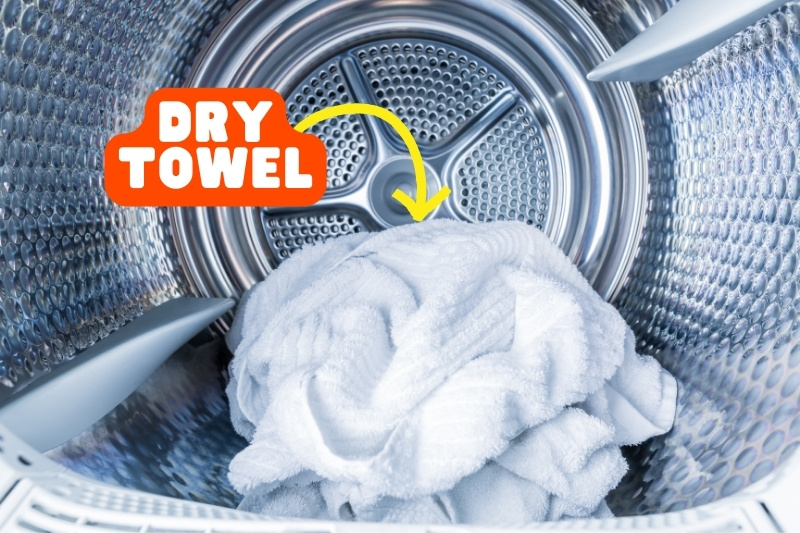
If you’re on a budget, there is one natural solution that everyone is sure to already have in their homes: a towel!
This is another dryer sheet alternative that can effectively reduce static cling and soften the fabric.
Simply make sure whatever towel you’re using is completely dry, and then throw it in the tumble dryer with the rest of your clothes.
However, if you often have large loads of washing, this may be a bit of a squeeze for your dryer, so perhaps use one of the other alternatives instead.
6. Tennis Ball
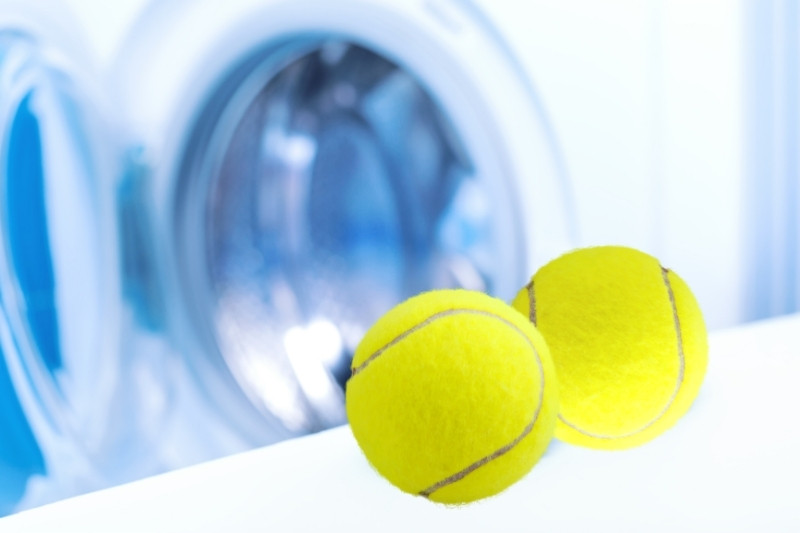
Surprisingly, tennis balls can also soften clothes: chuck one in your dryer with your wet clothes, and they’ll come out lovely and soft. Tennis balls coated with wool and nylon will be equally effective, but nylon may be the better option for those with wool allergies.
This is a great, cost-effective option for those who already have tennis balls lying around their home, as each ball can be reused multiple times, but buying them can become costly.
You also need to be careful when using tennis balls, as the rubber interior makes them bouncy, meaning they could damage your dryer if it isn’t heavy-duty.
7. Bicarbonate of Soda
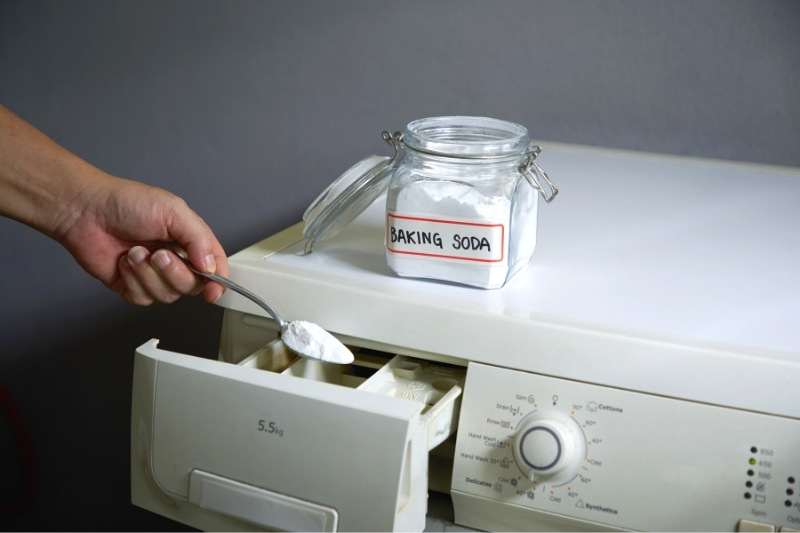
Now we need to go over the DIY fabric softener options, starting with bicarbonate of soda.
If you’ve spent much time on our website, you’re sure to have noticed that bicarbonate of soda is an incredibly versatile product that can be used to clean nearly everything.
Well, it turns out it is also great at softening water, meaning your clothes are less likely to come out of the dryer feeling scratchy.
Bicarbonate of soda is super cheap when bought in bulk, but you will have to add a few tablespoons of the powder to your washing during the rinse cycle.
Although this is fine if you have a top loader, it’s not an option if your washing machine is front loading.
8. White Vinegar
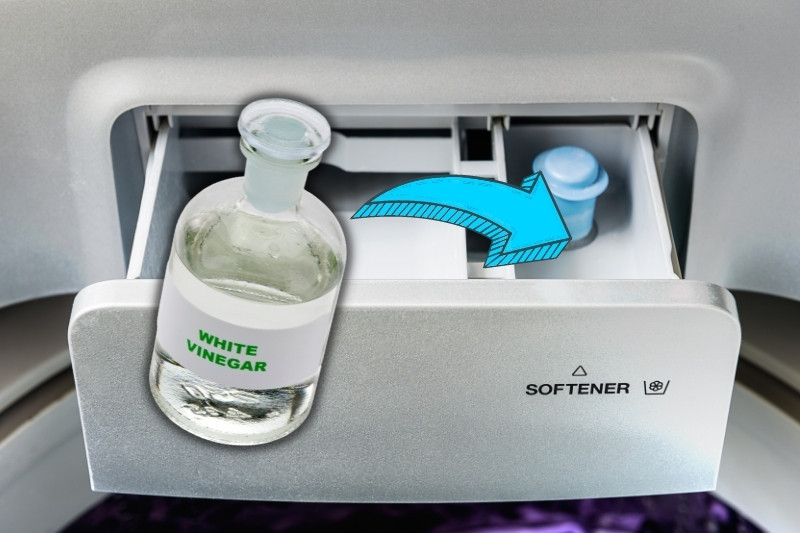
White vinegar is another versatile cleaning product that can also be used as a fabric softener replacement.
Not only will the vinegar soften your clothes, but it will prevent your coloured washes from fading and help remove any stains.
You can use white vinegar to soften your clothes in two ways:
- Pour roughly two tablespoons of vinegar into the fabric softener dispenser; OR
- Combine three teaspoons of essential oils with 500ml of white vinegar and spray the washing machine drum 10-15 times before loading in your washing
Both options are equally as effective, but the use of essential oils in the second method will remove any lingering smells from your clothes.
9. Bicarbonate of Soda and White Vinegar
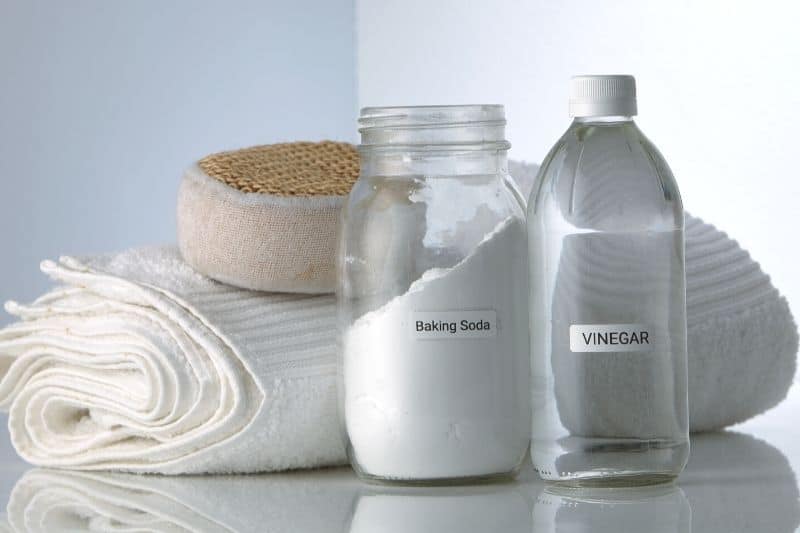
Perhaps unsurprisingly, bicarbonate of soda and white vinegar can also be combined to make a DIY fabric softener.
Combine two parts water with one part bicarbonate and one part vinegar in a bowl, and add two tablespoons of the mixture into the fabric softener dispenser for each load of washing.
If you like your fabric softener to be scented, add a few drops of your preferred essential oil to the mixture before adding it to the washing machine.
10. Hair Conditioner and White Vinegar
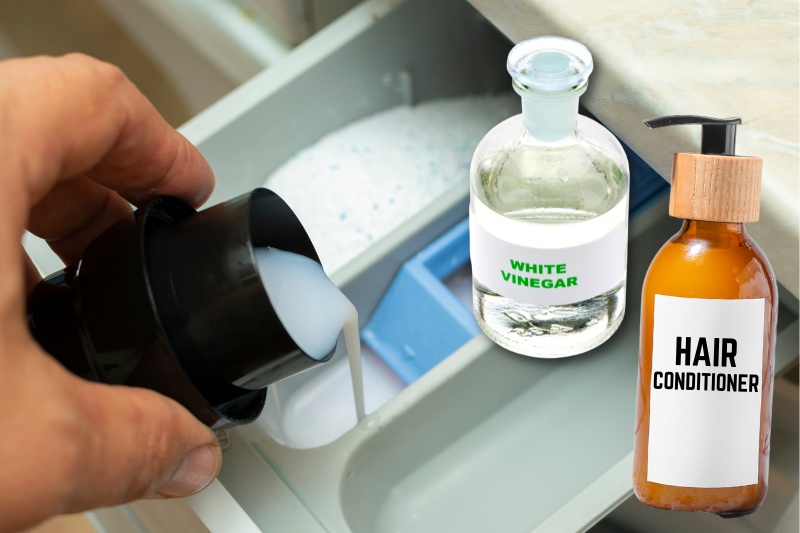
Hair conditioner is designed to keep your hair feeling soft and sleeky, so is it any surprise it can do the same to your washing?
By mixing 1.5 litres of water, 750 ml of white vinegar, and 500 ml of conditioner, you can quickly have a bottle of fabric softener that will last for at least 100 washes.
One of the great things about using conditioner is that you can easily customise the scent of your softener to your taste.
However, many cheap conditioners contain the chemicals you’re trying to avoid, so you’ll have to go for a more expensive brand if you choose this option.
11. Vegetable Glycerine
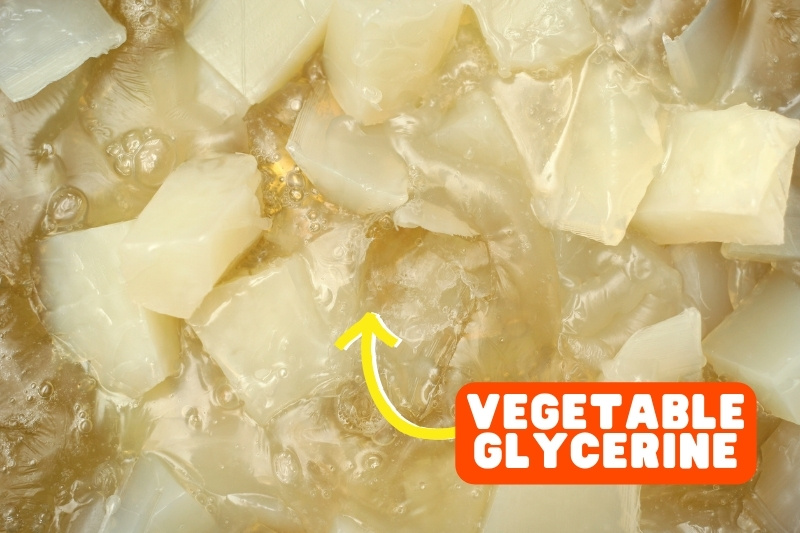
Our final eco-friendly fabric softener alternative is vegetable glycerine. This plant-based, odourless liquid is one of the main ingredients in homemade soap, and it is the perfect option for someone with sensitive skin.
To use, you need to mix one part vegetable glycerine with two parts water (and a few drops of essential oil if you want to give it fragrance), and then add a couple of tablespoons of the mixture to the fabric softener drawer with each wash.
Is It OK to Wash Clothes Without Fabric Softener?
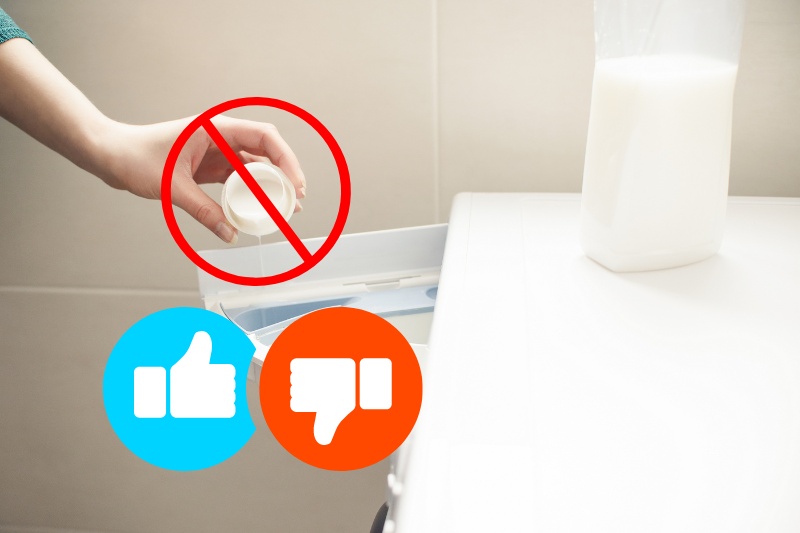
Although many people see fabric softener as essential when washing, you always have the option of going without.
Your clothes will still be just as clean without your softener; they may just be a bit more scratchy and staticky than you’re used to.
If you decide to scrap the fabric softener, you could try air drying your clothes instead of using the tumble dryer. This helps to eliminate the static that builds up when your clothes are put in the dryer.
Besides, tumble dryers can require a lot of energy to run. If you’re truly concerned about making greener alternatives, give the tumble dryer a miss!
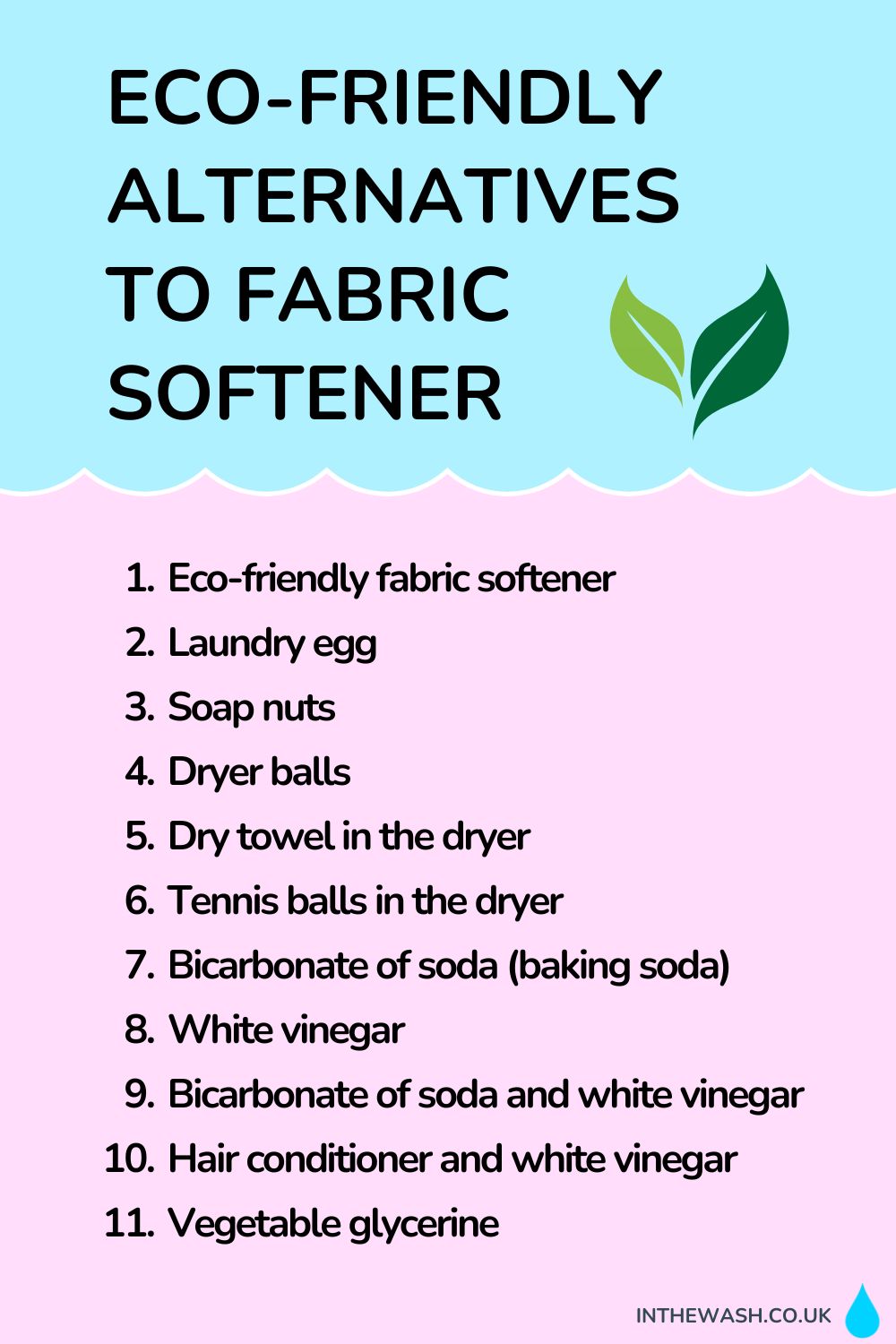

Hannah has a passion for cleaning. She worked her way around Australia by cleaning hostels in exchange for free accommodation and used her cleaning skills to bag a job as a chalet host for a luxury ski company in France.
